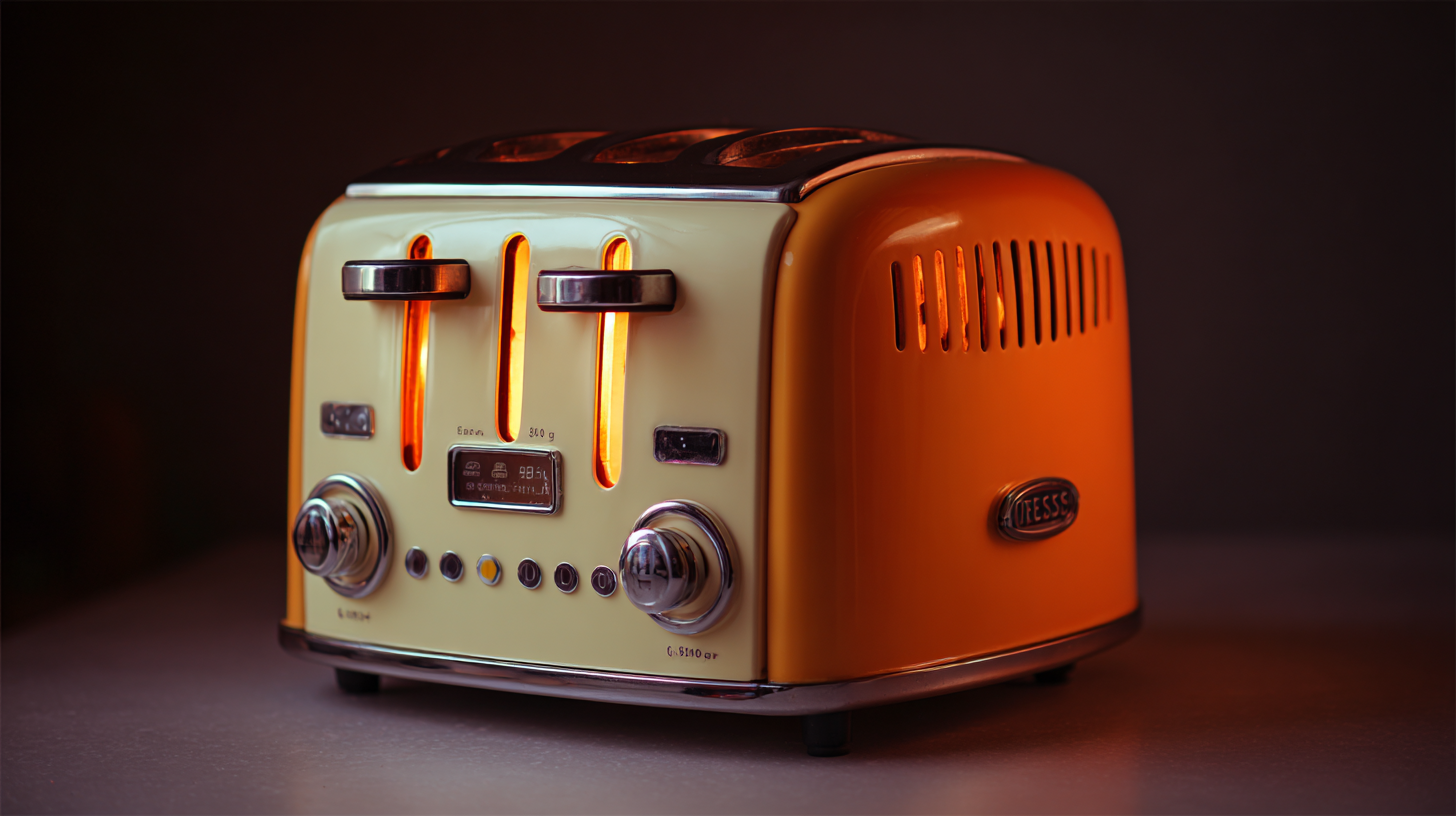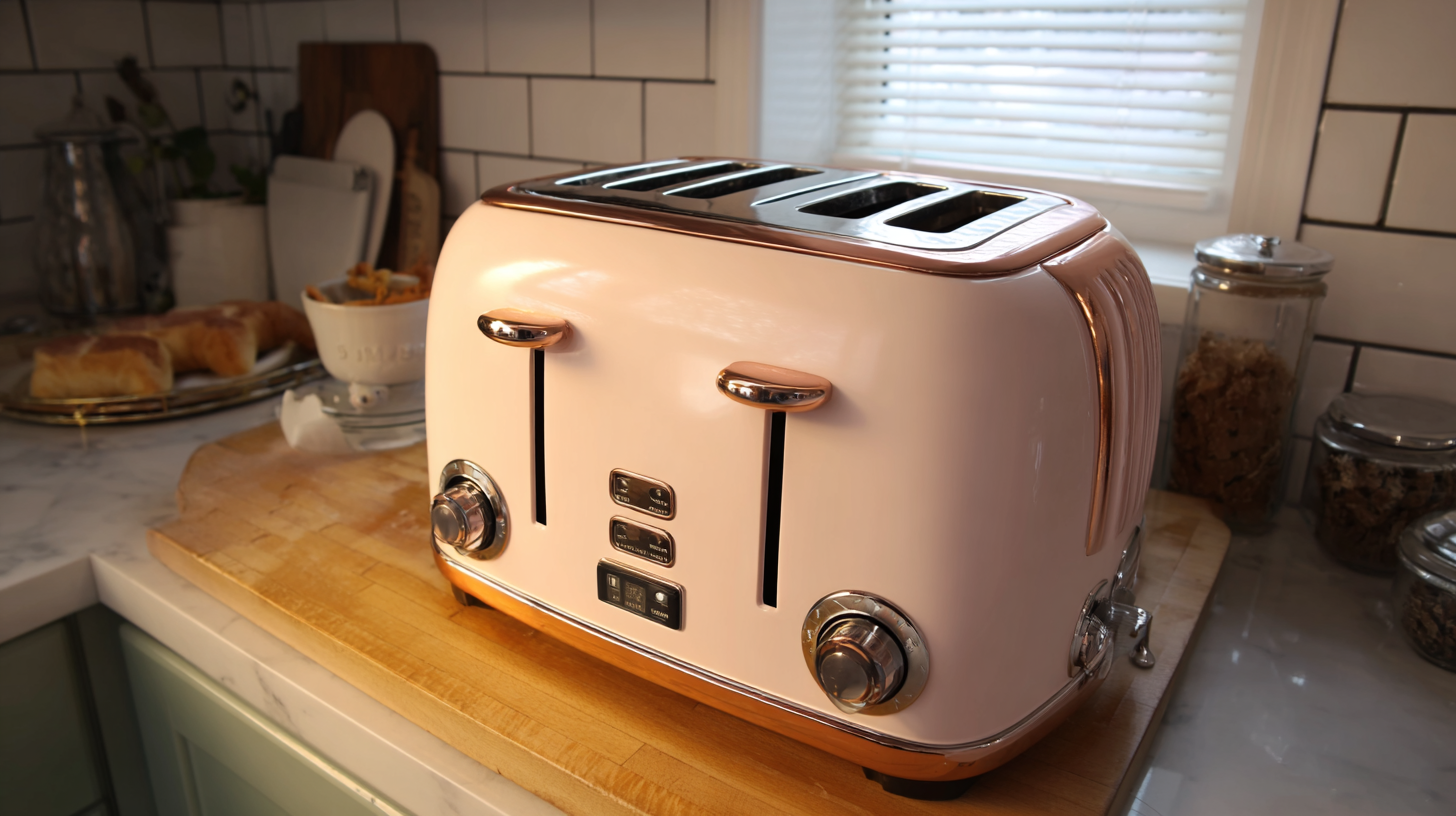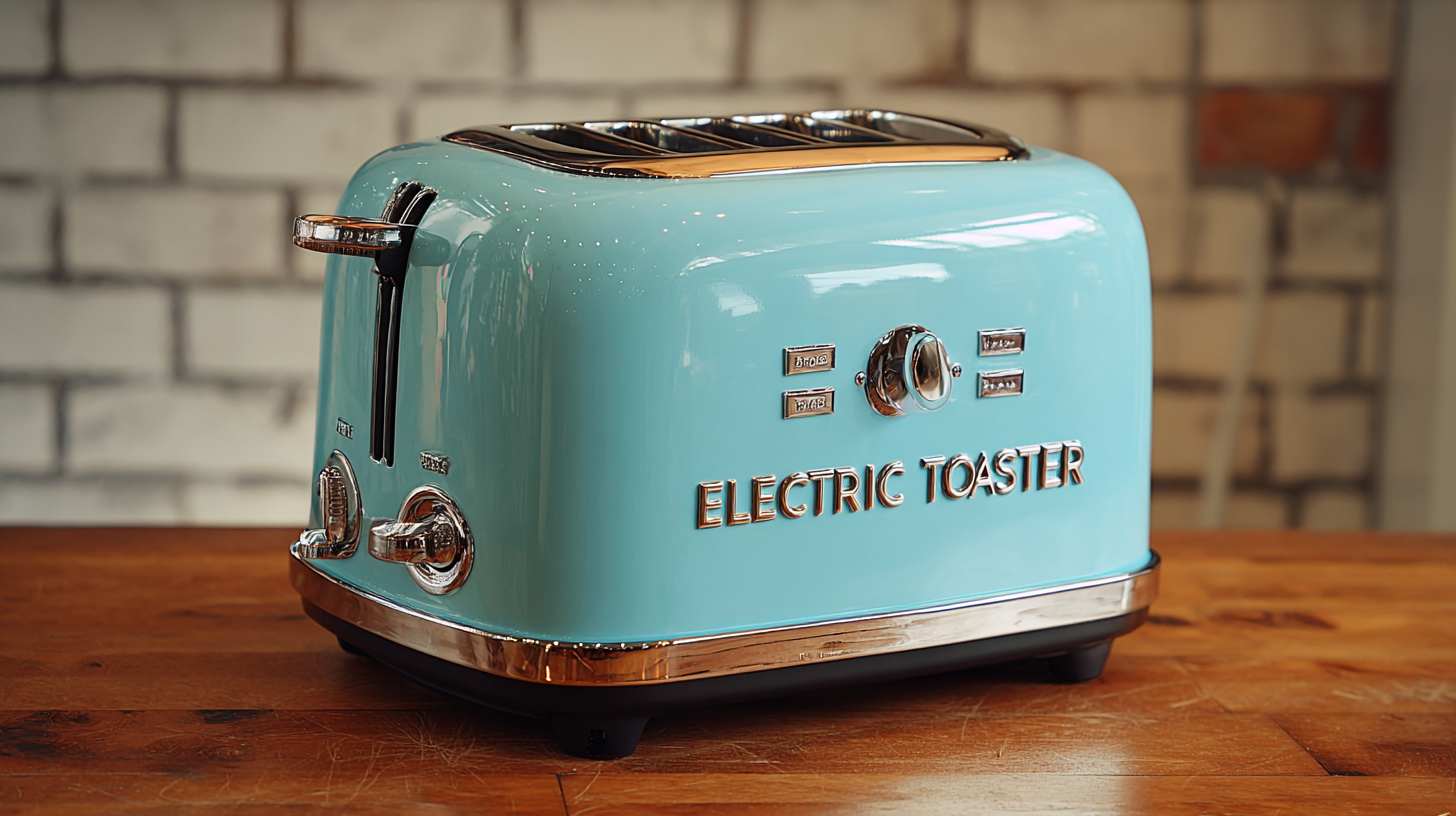- +86-13631182173
- sales@zsqeelin.com
- 8613631182173
 As the kitchen appliance market continues to evolve, the
electric toaster has emerged as a staple, showcasing a remarkable blend of
utility and innovation. According to a recent industry report by Statista, the global electric toaster market is projected to reach
over $3 billion by 2025, driven by increasing consumer
demand for convenience and efficiency in meal preparation. With a variety of alternatives available—from traditional
two-slice models to high-end smart toasters—selecting the best electric toaster can be a daunting task.
Understanding the diverse range of features, materials, and designs is crucial for consumers looking to make an informed
decision that complements their kitchen aesthetics and lifestyle. This handbook aims to demystify the selection process,
highlighting key factors and alternatives that can help elevate your toasting experience to new heights.
As the kitchen appliance market continues to evolve, the
electric toaster has emerged as a staple, showcasing a remarkable blend of
utility and innovation. According to a recent industry report by Statista, the global electric toaster market is projected to reach
over $3 billion by 2025, driven by increasing consumer
demand for convenience and efficiency in meal preparation. With a variety of alternatives available—from traditional
two-slice models to high-end smart toasters—selecting the best electric toaster can be a daunting task.
Understanding the diverse range of features, materials, and designs is crucial for consumers looking to make an informed
decision that complements their kitchen aesthetics and lifestyle. This handbook aims to demystify the selection process,
highlighting key factors and alternatives that can help elevate your toasting experience to new heights.
When selecting the best electric toaster for your kitchen, it's essential to consider more than just design and functionalities—understanding export and import certifications is equally crucial. These certifications ensure that the appliance meets specific safety and quality standards set by regulatory authorities. For consumers, this means that the toaster is less likely to have manufacturing defects or safety hazards, providing peace of mind while toasting breakfast favorites.
Moreover, trade certifications impact the availability and variety of toasters in the market. Many manufacturers strive to comply with international standards to make their products more appealing in a global marketplace. This compliance often leads to innovation, as brands aim to introduce advanced features while adhering to strict regulations. Thus, consumers benefit from not only safer products but also more effective and stylish options that enhance their kitchen experience. When choosing a toaster, seeking out products with the right certifications could ensure you invest in a high-quality, reliable appliance for your daily needs.
When selecting an electric toaster for your kitchen, understanding the key certification standards across different markets is crucial. Certification marks like UL (Underwriters Laboratories) in the U.S. and CE (Conformité Européenne) in Europe ensure that the appliance meets safety and performance guidelines. These certifications help to ensure that toasters are designed with user safety in mind, reducing the risk of electrical faults and potential hazards.
When shopping for an electric toaster, always check for these certification marks. Tips to consider include reviewing user reviews and ratings to gauge the reliability of the product. Additionally, ensure that the toaster has an appropriate warranty to cover any potential manufacturing defects. This not only provides peace of mind but also indicates a manufacturer's confidence in their product.
Understanding regional certifications is essential, as some countries may have specific requirements that can affect functionality. For example, certain toasters may come with features tailored to those standards, such as energy efficiency ratings or compatibility with local voltage levels. Before making a purchase, research what certifications are relevant in your country and their implications for safety and efficiency in your kitchen.

Navigating the compliance process for international toaster sales can be daunting for manufacturers and retailers. Each target market has specific regulations regarding safety, efficiency, and environmental impact that must be adhered to. For instance, the International Electrotechnical Commission (IEC) mandates stringent safety standards for electrical appliances; non-compliance can lead to severe penalties or product recalls. According to a recent report by the Global Industry Analysts, the demand for electrical kitchen appliances, including toasters, is projected to reach $35 billion by 2027, emphasizing the importance of understanding these compliance issues to seize market opportunities.
To streamline the compliance process, manufacturers should begin by familiarizing themselves with the relevant standards in the countries they wish to enter. For example, the European Union's Low Voltage Directive (LVD) and the Restriction of Hazardous Substances Directive (RoHS) are critical for any product intended for sale within its borders. Additionally, conducting thorough testing and obtaining certifications from recognized bodies can facilitate smoother entry into international markets.
**Tips:** Always consult with compliance experts or legal advisors who specialize in international trade to ensure that you meet all the necessary requirements. Moreover, regularly updating your knowledge of legislative changes can give your brand a competitive edge and enhance consumer trust.
 When selecting the best electric toaster for your kitchen, the impact of certifications cannot be overlooked. Certifications from reputable organizations can significantly enhance consumer trust, as they serve as a guarantee of safety, quality, and efficiency. For instance, toasters certified by the Underwriters Laboratories (UL) or similar entities undergo rigorous testing to ensure that they meet strict safety standards. This builds confidence in potential buyers, assuring them that the product has been evaluated for electrical safety and is less likely to pose hazards such as overheating or electrical malfunctions.
When selecting the best electric toaster for your kitchen, the impact of certifications cannot be overlooked. Certifications from reputable organizations can significantly enhance consumer trust, as they serve as a guarantee of safety, quality, and efficiency. For instance, toasters certified by the Underwriters Laboratories (UL) or similar entities undergo rigorous testing to ensure that they meet strict safety standards. This builds confidence in potential buyers, assuring them that the product has been evaluated for electrical safety and is less likely to pose hazards such as overheating or electrical malfunctions.
Moreover, certification can also indicate the product's performance capabilities. Brands that invest in obtaining certifications often demonstrate a commitment to quality control and customer satisfaction. For instance, toasters with certifications related to energy efficiency can appeal to environmentally conscious consumers looking to reduce their electricity bills. Thus, paying attention to the certifications on a toaster can lead to a more informed decision, resulting in a kitchen appliance that not only meets basic functional needs but also aligns with consumer values regarding safety and sustainability.
In today's competitive marketplace, manufacturers of electric toasters must navigate a labyrinth of industry standards to ensure product safety and quality. According to a 2022 report from the International Electrotechnical Commission (IEC), nearly 20% of kitchen appliance recalls were related to electrical safety issues. This statistic highlights the critical need for manufacturers to prioritize compliance with standards such as IEC 60335-2-9, which specifically addresses the safety requirements for toasters.
To enhance their compliance efforts, manufacturers should invest in rigorous testing protocols during the design phase. Research from the American National Standards Institute (ANSI) indicates that products that undergo thorough safety assessments before hitting the market are 40% less likely to be recalled. Additionally, adopting best practices such as implementing a quality management system aligned with ISO 9001 can further bolster production processes and ensure that final products meet consumer safety expectations. By adhering to these compliance measures, manufacturers can not only protect their brand reputation but also contribute to the overall safety of kitchen environments.
